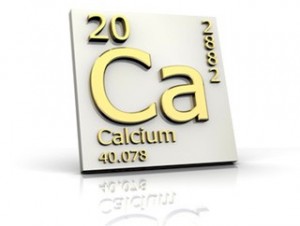By Jordan & Kyla Miller, R.H.N.
Contributing Writer for Wake Up World
Based on a client’s nutritional assessment, I sometimes recommend that dairy be removed from their diet, which often leads to the question of where they will get their calcium. Undoubtedly, this is a valid question, since calcium is essential for bone formation, the prevention of osteoporosis, and for nerve transmission.
Unfortunately, mass media has portrayed milk and dairy products, as the only acceptable source of calcium and this couldn’t be further from the truth. It is true that dairy products do contain large amounts of calcium, but what seems to be brushed over is the fact that they are also difficult to digest and absorb. Milk, for instance, when pasteurized, loses much of its calcium and enzymes that would allow calcium absorption to take place. Skim milk is an even poorer source of calcium because it is missing the fat that is necessary for its absorption.
When trying to increase calcium levels, the focus should first be on minimizing the loss of calcium. After all, you can consume as much calcium as you want, but if your body is not absorbing it or if it is being pulled out of the body by other factors, there is not much point. Some of the most common factors that can drain the body of calcium include:
[pro_ad_display_adzone id=”110028″]
Caffeine (coffee, tea, soda, and chocolate)
The intake of caffeine causes an increase of calcium loss in the urine.
Refined sugar
When foods containing calcium are consumed with sugar, the absorption of usable calcium is greatly reduced. This results in the excess unusable calcium being secreted through the urine.
Phosphorus
Phosphorus binds with calcium. This means that if phosphorus levels in the blood are high, it will actually pull calcium from our bones. Meat, grains, and soda all contain high amounts of phosphorus.
Salt (table salt)
Sodium increases urinary calcium secretion.
Vitamin D
Without vitamin D, calcium cannot be used for bone formation because it is responsible for activating the absorption and transportation of calcium.
Protein
When too much protein is consumed, the excess is broken down and has a diuretic effect, resulting in minerals such as calcium to be lost in the urine. Protein is also acid forming to the body. When the body is in an acidic state, minerals such as calcium are pulled from the bones to buffer the excess acidity.
Alcohol
The over consumption of alcohol causes an acidic environment in the body, leading to the pulling of calcium from the bones to buffer the excess acidity.
A note on allergy
Milk is the number one allergic food. Milk contains more than 25 different proteins that may induce allergic reaction. In addition, many people are lactose intolerant. This is the inability to digest lactose, the sugar naturally present in milk. This is due to a deficiency in the enzyme lactase, necessary for the digestion of lactose. In fact, recent statistics show that 70% of the world’s population is lactase deficient and the number keeps growing. As you can see, milk is clearly not for everyone.
Alternative sources of calcium
Once you’ve taken care of the factors that deplete calcium from your body, you can then focus on adding more into your diet. And you’ll be happy to know that it is possible to get enough calcium in your diet without using diary products. Almonds, walnut, sesame and sunflower seeds are all excellent sources of calcium. They can be eaten whole, in a nut or seed butter or in the form of nut or seed milk. Collard greens, lamb’s quarters, kale and artichokes are among the highest vegetable sources of calcium. Chickpeas, navy beans, and organic soybeans also contain high amount of calcium. Blackstrap molasses contains an astounding 172 mg of calcium in just 1 tbsp. Seaweeds, such as kelp and wakame, are also high in this mineral. As you can see, a colorful and varied whole foods diet is once again the answer to getting the nutrients your body needs.
Calcium supplementation
At times, supplemental calcium may be required. There are many factors to consider when choosing a calcium supplement. For example, many of the calcium supplements on the market today contain a poorly absorbable form of calcium. Additionally, taking too much calcium can deplete other essential minerals.
To learn more about alternative sources of calcium, how to incorporate them in your diet and choose a high quality calcium supplement that is right for you, book a nutritional consultation today.
Article Sources
Carolee Bateson-Koch DC ND, Allergies: Disease in Disguise
Previous Article
- Understanding Protein and Protein Sources
- Ten Other Uses for Salt
- The Medicinal Properties of Lilies
- The Health Benefits of Cinnamon
- The Many Health Benefits of Raw Honey
About the Author
Jordan & Kyla are passionate about health; together, they have overcome many illnesses through dietary and lifestyle changes, and the art of practicing a positive mindset daily. Kyla is a Registered Holistic Nutritionist and is currently studying to become a Reiki Master, and Jordan is currently learning about traditional North American medicinal herbs, in hopes of becoming a Certified Herbalist. For more information, please visit guidinginstincts.com or nutritionalinstincts.com for nutritional consultations.
[pro_ad_display_adzone id=”110027″]
Disclaimer: This article is not intended to provide medical advice, diagnosis or treatment. Views expressed here do not necessarily reflect those of Wake Up World or its staff.







